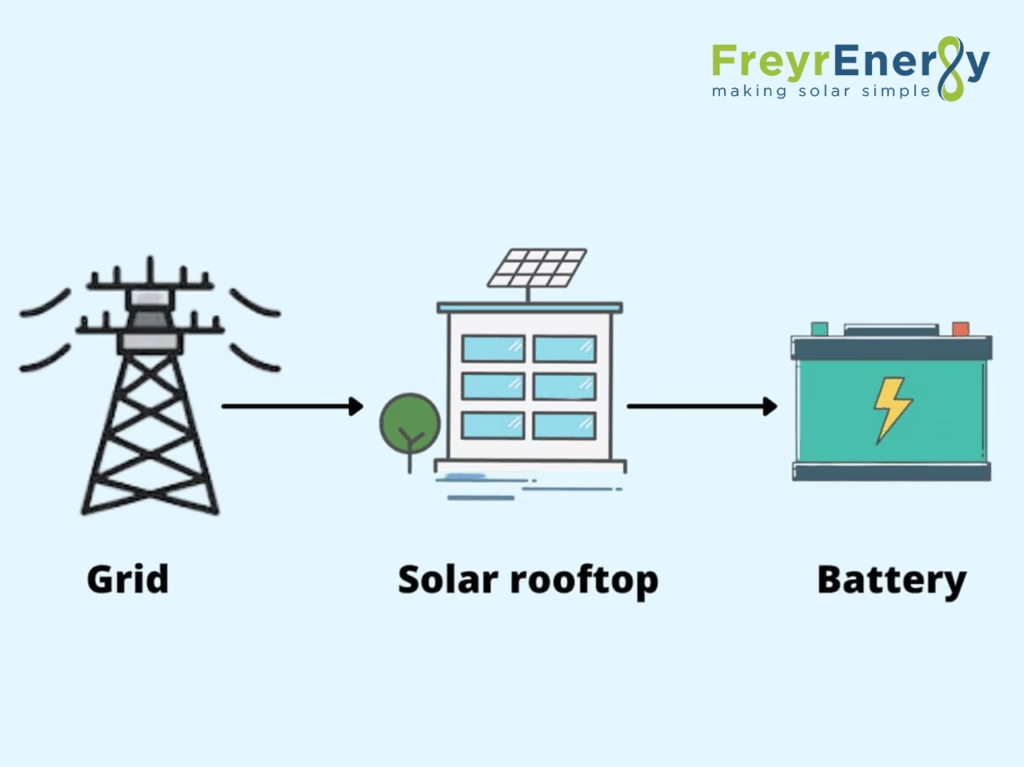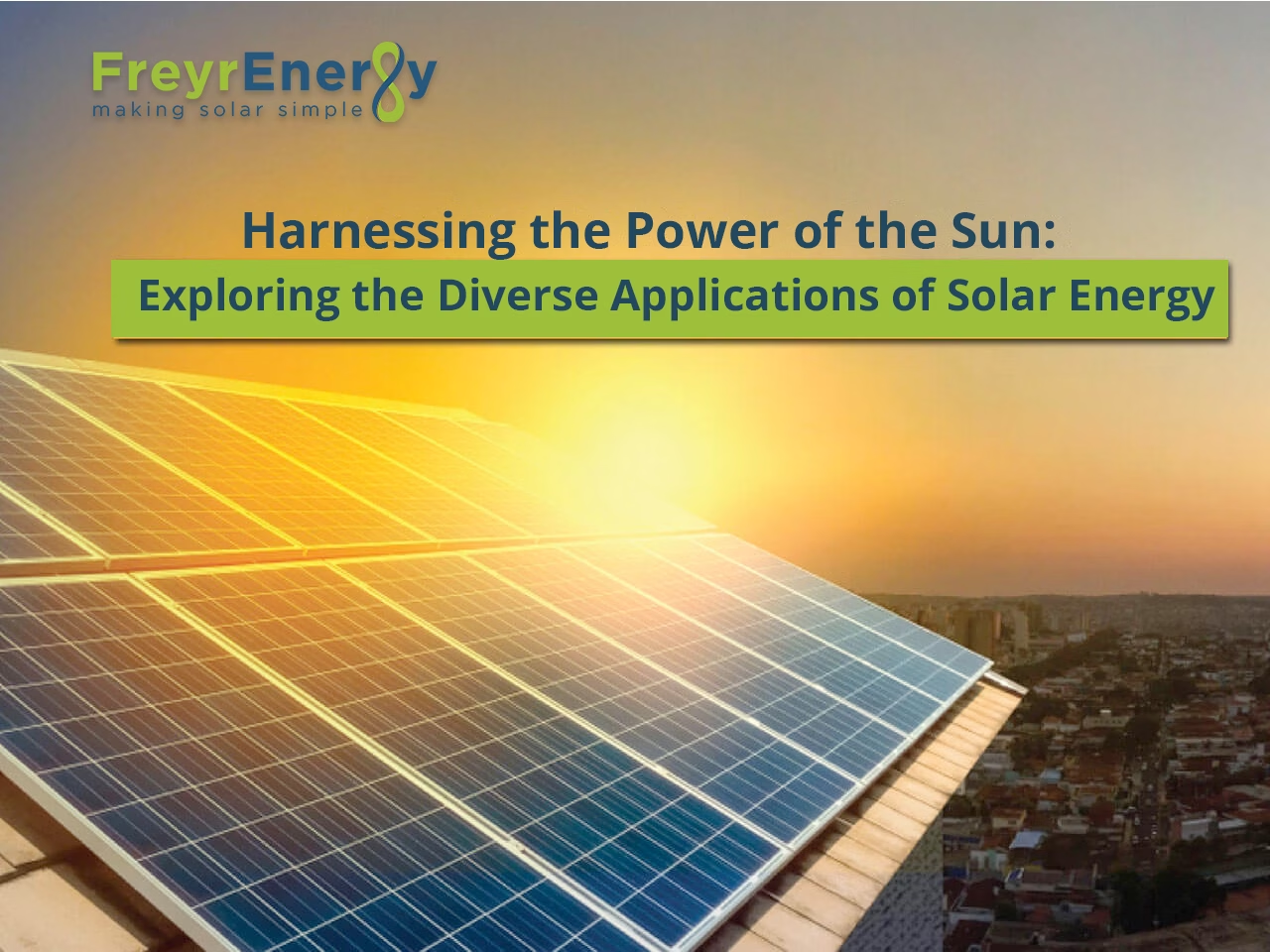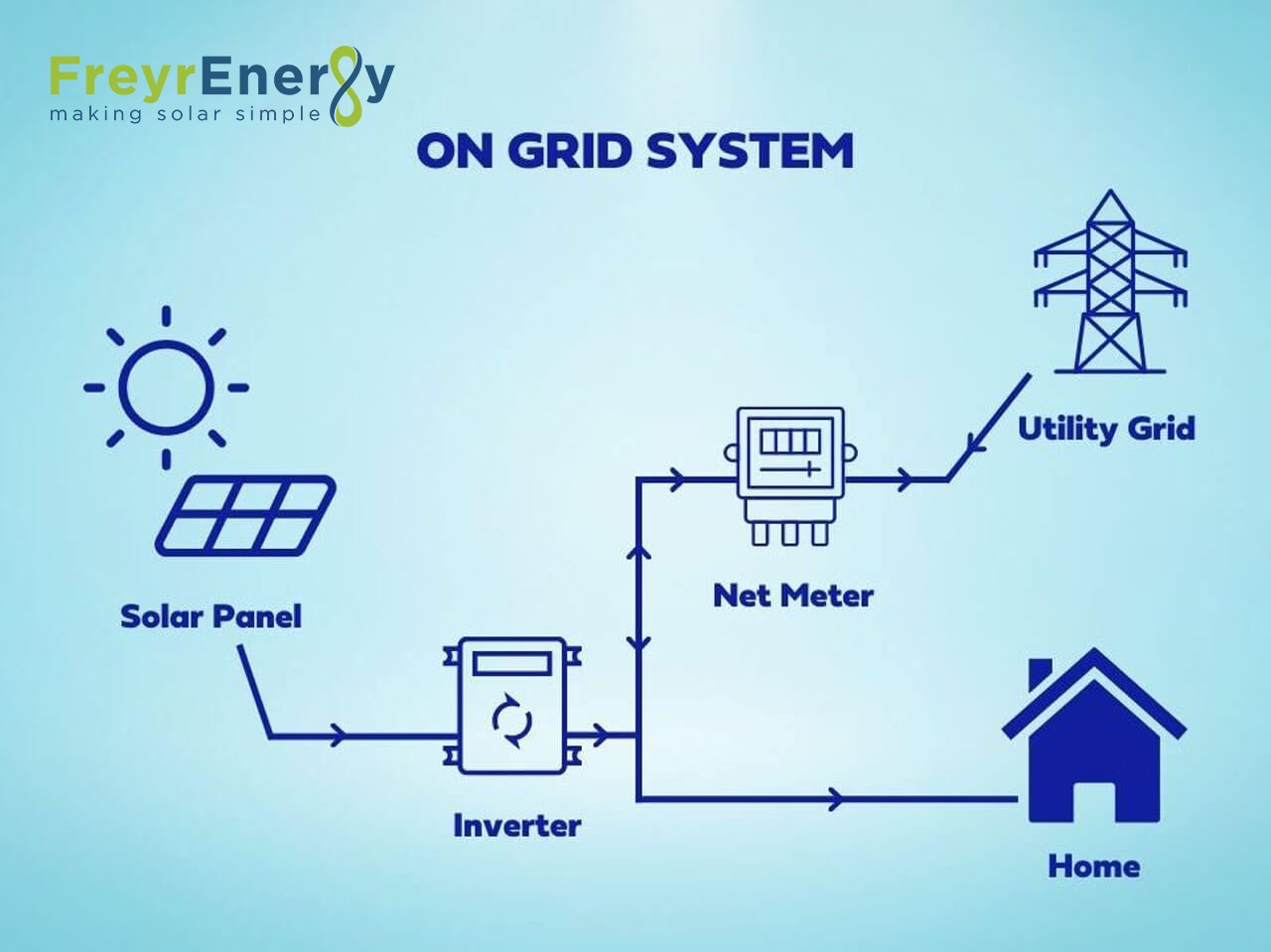How Solar energy works?
Solar panels absorb sunlight and convert it to direct current (DC). This is then converted by a solar inverter to alternating current (AC), which can be used by homes or businesses. Solar energy systems are classified into three types depending on the energy storage and grid connectivity – On-grid solar systems, off-grid solar system, and hybrid solar systems. Each types of solar system are tailored to a specific set of requirements.

On-grid Solar Systems
This is the simplest and most cost-effective system to install. Here, the system is grid-connected and does not have energy storage. The net meter records the number of units exported and imported. This allows you to receive credit for excess power exported to the grid. On grid solar systems are especially useful in cases where there is a stable grid connection. It is easy to maintain, cost effective and easy to install.
Off-grid Solar Systems
Solar systems that have to store excess electricity in batteries and are not connected to the grid electricity are called off-grid solar system. Off-grid systems are typically deployed in remote locations or places with unstable grid connections. Freyr Energy suggests clients with power outrages for more than 4 hours regularly opt for Off-grid systems. Due to batteries, they require higher maintenance and are expensive compared to on-grid system.
Hybrid Solar Systems
A hybrid system as the name suggests, combines on-grid and off-grid solar system. Here, the system is linked to the grid as well as the battery. The inverter has three priorities: first, it will supply power to charge batteries, and once the batteries are full, it will supply alternating current to the load. Any excess electricity is then routed to the utility grid via the net meter. The net meter monitors the amount of electricity imported and exported and the customer can get a credit for the units exported. Hybrid systems can work even during a power outage as the batteries provide a reference voltage for the system to operate. They are relatively high maintenance more complicated to set up and require the most upfront capital.
Which types of solar system you should choose?
On-grid systems are gaining popularity in India as they are simple to maintain, provide a quicker return on investment, and are simple to install. They are far less expensive compared to hybrid and off-grid systems. Unless you have a power outage for more than 4 hours daily, an on-grid system might work best for you.
Freyr Energy has completed over 1,700+ installations across 22 states. We specialize in rooftop solar and are certified to offer subsidies for rooftop solar installation on Indian homes. You may be eligible for a 20-40% subsidy for your rooftop solar systems. So, what are you waiting for? Make the transition to solar energy today.
Frequently Asked Questions
Solar energy system works when the solar panels absorb sunlight and convert it into direct current. This is passed through an inverter, which converts into alternating current sources, which are commonly used by home appliances and domestic utilities.
Here are the three types of solar power system, including:
- On grid
- Off grid
- Hybrid
On grid solar systems are the most popular solar energy types, where the solar panels are connected directly to a grid. With net metering in place, these panels assure power supply and export back any excess generated power back to the grid.
Off grid solar system is an arrangement where the panels are connected to batteries, and they act as a storage unit. This is useful in areas where grid connections do not cover adequate supply.
Hybrid solar system is a combination of off grid and on grid solar systems. These grids are connected to both batteries as well the main power grid, with the inverter playing an important role. First, it charges the batteries for storage and once they are full, it sends back the excess unused power to the grid. With net metering, users can earn credits for unused potential. The only downside is the expense, as they have a complicated connection which costs a large chunk of money. Thus, hybrid remains one of the leading types of solar system for people opting to get the most out of the batteries while relying remotely on grids.
Out of the three solar energy system types, on grid stands as the most popular option across India, owing to its easy installation, simple maintenance and quick ROI assurance. They are less expensive than hybrid and off grid systems.
On grid is among the leading types of solar energy systems that are connected to a power grid and do not have a battery storage unit. This is the most common setup with net metering facilities to track down the units consumed and exported. With energy sent back to the grid, users can gain credits on their bills. On grid systems are very useful with a stable grid and are easy to maintain.
Yes. When you install a panel from installers recognized by the government, you can avail subsidy with ease. With companies like Freyr Energy, we ensure you receive your rightful subsidy and help you with the formalities and paperwork before you apply for the subsidy.



